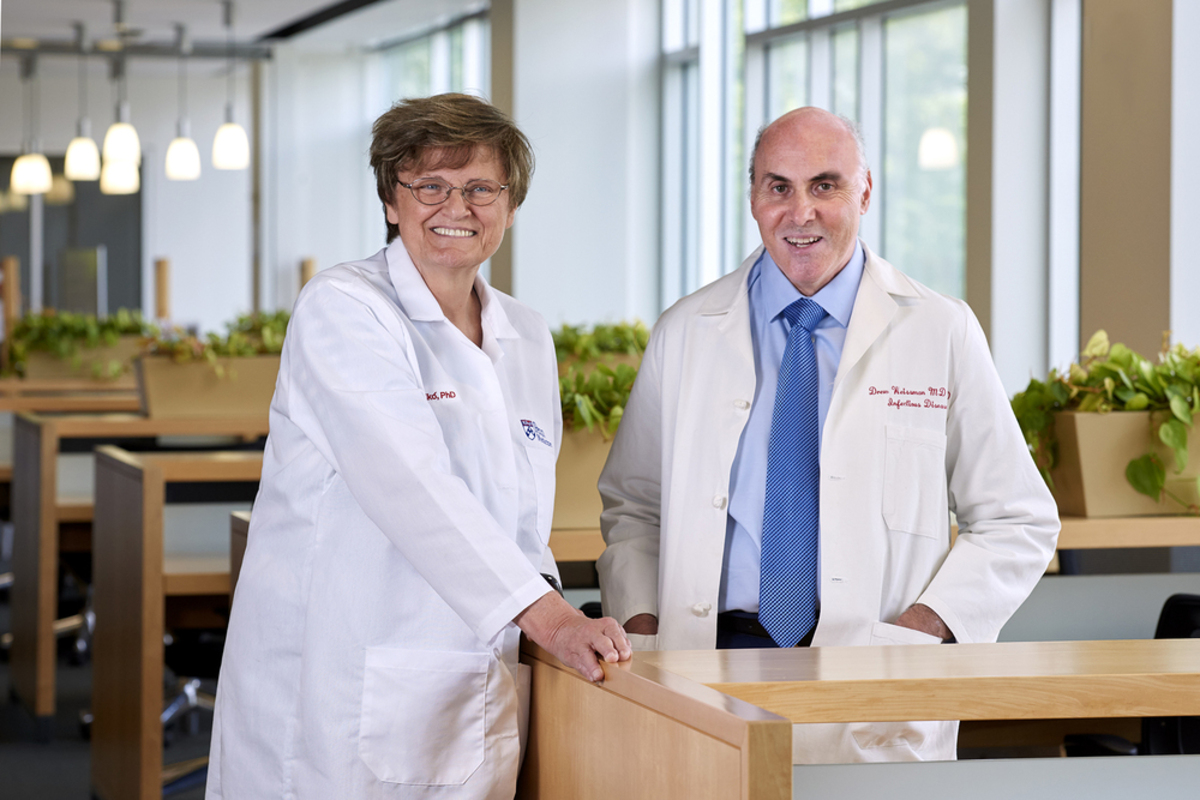Scientists Behind mRNA Covid Vaccines Win 2023 Nobel Prize in Medicine
A pair of scientists have been awarded the Nobel Prize in Physiology or Medicine for developing the technology that lead to the mRNA Covid vaccines.
The incentive will be divided between Professors Katalin Kariko and Drew Weissman.
Before the pandemic, the technology was experimental, but it has now been distributed to millions of people around the globe to protect them from COVID-19.
The same mRNA technology is currently under investigation for other diseases, including malignancy.
The Nobel Prize committee stated, “The laureates contributed to an unprecedented rate of vaccine development during one of the greatest threats to human health in modern times.”
This morning, both were reportedly “overwhelmed” after learning they had won via phone.
Vaccines educate the immune system to recognize and combat viruses and bacteria.
Historically, vaccine technology has relied on deceased or weakened versions of the original virus or bacterium, as well as infectious agent fragments.
In contrast, messenger ribonucleic acid (mRNA) vaccines employ an entirely distinct strategy.
Both the Moderna and Pfizer/BioNTech vaccines used mRNA technology during the COVID pandemic.
Professors Kariko and Weissman met at the University of Pennsylvania in the United States in the early 1990s, when their interest in mRNA was considered a scientific backwater.
A mRNA Covid vaccine contains the genetic instructions for constructing one coronavirus component, a protein.
When a virus is injected into the body, our cells produce large amounts of viral protein.
The immune system recognizes these as foreign, so it launches an attack, learns how to combat the virus, and gains a head start for future infections.
The central premise of the technology is that it is possible to swiftly develop a vaccine against virtually any pathogen, given the appropriate genetic instructions.
This makes it significantly more efficient and adaptable than conventional approaches to vaccine development.
There are even experimental applications of technology that teach cancer patients’ bodies how to combat the disease.
Scientists analyze a patient’s tumor, search for abnormal proteins produced by the cancer that are not present in healthy tissue, devise a vaccine to target those abnormal proteins, and then administer the vaccine to the patient.
Profs. Kariko and Weissman made the crucial discoveries that led to the development of mRNA vaccines.
The concept utilizes standard human biology. RNA is responsible for translating the instructions contained in our genetic code, or DNA, into the proteins that make up our bodies.
Nonetheless, there were obstacles. By refining the technology, however, the scientists were able to produce significant quantities of the desired protein without causing the dangerous levels of inflammation observed in animal experiments.
This paved the path for the development of vaccines for human use.
Katalin Kariko is currently a professor at Szeged University in Hungary, while Drew Weissman continues to teach at the University of Pennsylvania.
Also Read:




